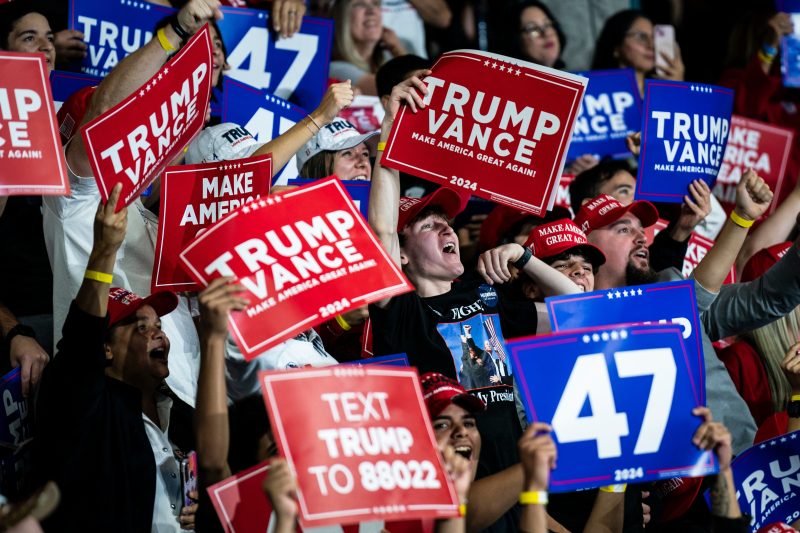In a recent study conducted by Pew Research Center, it was found that more Americans perceive Vice President Kamala Harris as very ideological compared to former President Donald Trump. This revelation sheds light on the apparent difference in how the two political figures are viewed by the American populace.
The term ideological carries significant weight in the realm of politics, as it denotes a strong adherence to a particular set of beliefs, principles, or doctrines. For Vice President Harris, who identifies as a Democrat, her stance on various social, economic, and environmental issues resonates with many Americans who share similar progressive views. Her advocacy for policies related to healthcare, climate change, and racial justice has solidified her reputation as a principled and unwavering leader. This perception of Harris as ideologically-driven could be attributed to her consistent support of liberal causes and her relatively short tenure as Vice President, which has placed a spotlight on her policy priorities.
On the other hand, former President Trump, a Republican, is also perceived as ideological by a significant portion of the American population, albeit to a lesser extent than Vice President Harris. Trump’s brand of conservatism, characterized by his America First agenda, anti-immigration stance, and nationalist rhetoric, has endeared him to his loyal supporters while alienating those who oppose his policies. The perception of Trump as less ideological than Harris could stem from his shifting positions on certain issues, as well as his unconventional approach to governance, which often defies traditional partisan labels.
The Pew Research Center survey also highlights the importance of ideology in shaping public perceptions of political figures. For many Americans, a leader’s ideological leaning serves as a guiding factor in determining their trustworthiness, effectiveness, and overall suitability for office. Whether viewed as very ideological or less so, both Vice President Harris and former President Trump have managed to leave a lasting impact on the political landscape, each representing distinct visions and priorities for the country.
As the American electorate continues to grapple with complex challenges and divisive issues, the question of ideology remains a critical lens through which leaders are evaluated. It is evident that Vice President Harris and former President Trump occupy contrasting positions in the ideological spectrum, reflecting the broader political divide that characterizes contemporary American society. Ultimately, the perception of a leader as ideological can shape public opinion, influence policy debates, and impact the future direction of the nation.

